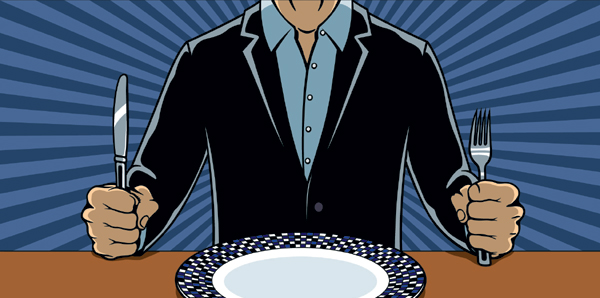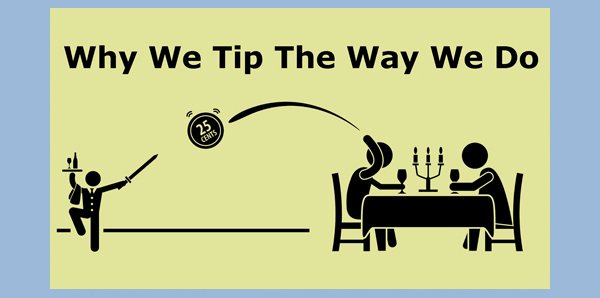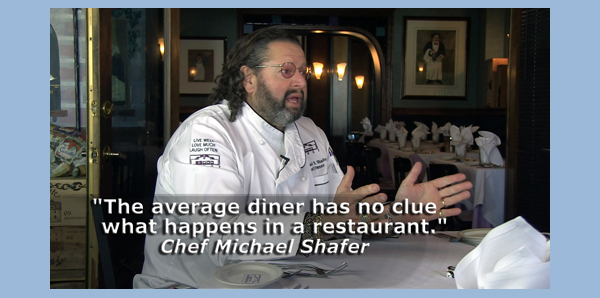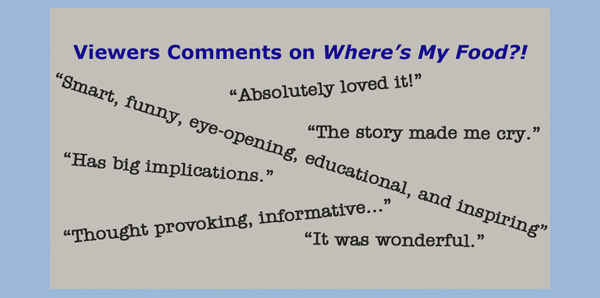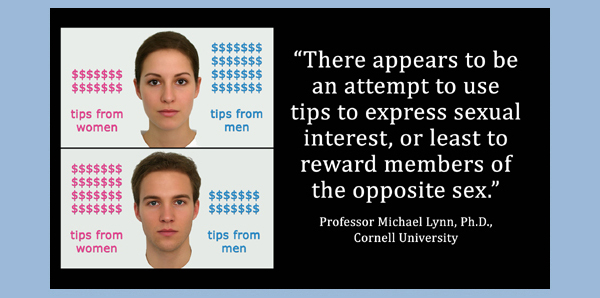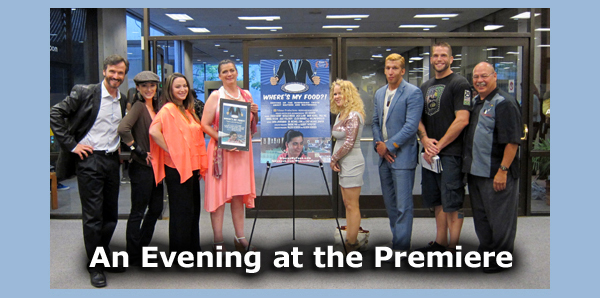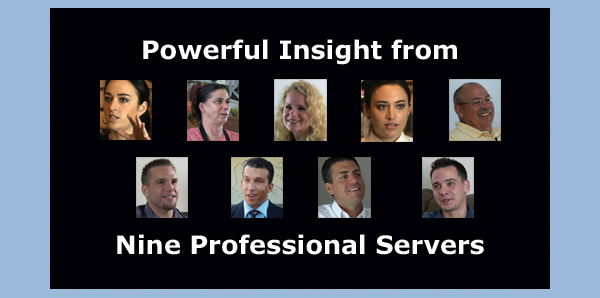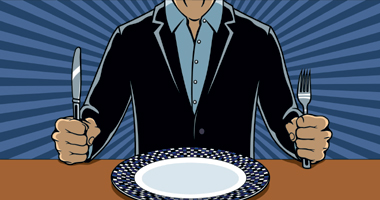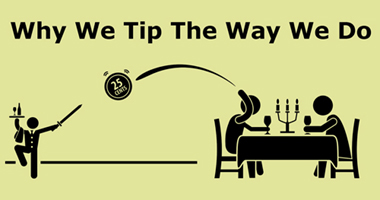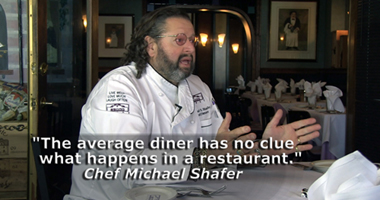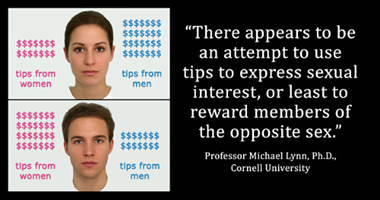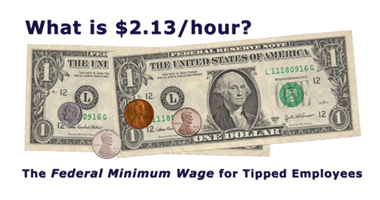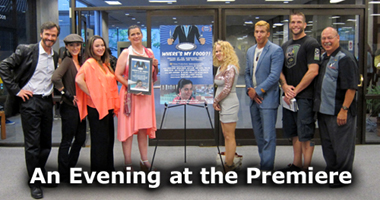The Professor, Psychologist and Expert on Tipping
Professor Michael Lynn, Ph. D., Cornell University
 Dr. Michael Lynn
is widely regarded as the preeminent expert in the consumer psychology and
socioeconomic impacts of tipping. He's the Burton M. Sack Professor of Food and Beverage
Management at Cornell University’s School of Hotel Administration. Through undergraduate and graduate school
he waited tables and bartended.
Dr. Michael Lynn
is widely regarded as the preeminent expert in the consumer psychology and
socioeconomic impacts of tipping. He's the Burton M. Sack Professor of Food and Beverage
Management at Cornell University’s School of Hotel Administration. Through undergraduate and graduate school
he waited tables and bartended.
Professor Lynn points out that, from an
economic perspective, tipping is irrational, because it doesn't impact the
quality of the service that you just received. Furthermore, his research shows
that tipping is not tightly connected to rewarding good service. From a
psychological perspective, a key reason people tip, he says, is to avoid
disapproval from the server.
A downside to tipping, Dr. Lynn adds, is
that if a server expects a smaller tip from, say, an ethnic minority, a teenager
or an elderly couple, that waiter or waitress is therefore motivated to
discriminate in their service delivery by giving less attention and lower
quality service. Better, the server may believe, to direct their energies toward
customers who would be expected to tip at least the social norm of fifteen to
twenty percent of the bill.
The professor's research shows that certain
ethnic and minority groups are unaware of the 15-20% social norm, and do, as a
result, regularly tip less. This negatively affects ethnic neighborhoods because
new restaurants have trouble staffing in such communities, so they often choose
not to invest in them. Neighborhood education campaigns may be key in turning
the trend around, says Dr. Lynn, by teaching residents about tipping norms and
about how servers depend on tips as their primary source of income.
The Restaurant Owner and Executive Chef
Chef Michael Shafer
 Chef
Michael Shafer is the owner and executive chef of two Los Angeles area
restaurants: The upscale Depot and the casual dining Buffalo Fire Department.
Originally from Buffalo, New York, Chef Shafer was classically trained in
Europe, where he won the World Culinary Olympics Gold Medal.
Chef
Michael Shafer is the owner and executive chef of two Los Angeles area
restaurants: The upscale Depot and the casual dining Buffalo Fire Department.
Originally from Buffalo, New York, Chef Shafer was classically trained in
Europe, where he won the World Culinary Olympics Gold Medal.
Describing
his restaurant management style as tough-but-compassionate, Chef Shafer employs
dozens of back-of-the house and front-of-the-house workers. "I treat this as my
family. I've had servers who've been with me for 15, 18 years. If you can thrive
on the chaotic structure, then you're meant for the restaurant industry. If you
can't, what happens is drug addiction, alcoholism, it ruins your family, it
ruins relationships because of the hours, and it will ruin you physically." He
adds with a smile, "The industry breeds a lot of strange characters."
The Lawyer, Author and Workers Rights Activist
Saru Jayaraman
 Saru
Jayaraman, Director of Food Labor Research at UC Berkeley, is trying to raise
awareness about poor working conditions in restaurants. The Yale- and
Harvard-educated lawyer and workers rights activist recently wrote a new book,
“Behind the Kitchen Door,” that has led to appearances on several television
programs. Jayaraman was recently in Los Angeles for a guest appearance on HBO’s
“Real Time with Bill Maher.” She was interviewed that same day by the producers
of the documentary film “Where’s My Food?!”
Saru
Jayaraman, Director of Food Labor Research at UC Berkeley, is trying to raise
awareness about poor working conditions in restaurants. The Yale- and
Harvard-educated lawyer and workers rights activist recently wrote a new book,
“Behind the Kitchen Door,” that has led to appearances on several television
programs. Jayaraman was recently in Los Angeles for a guest appearance on HBO’s
“Real Time with Bill Maher.” She was interviewed that same day by the producers
of the documentary film “Where’s My Food?!”
Jayaraman is trying to raise
the public’s awareness about restaurant workers who struggle with wage theft,
sexism, racism, and little to no health benefits or paid sick days. She explains
how customers and coworkers are exposed when a sick employee is essentially
forced to work while ill. The powerful NRA (National Restaurant Association, led
in the late 1990s by Herman Cain, who later ran as a Republican candidate for
president) persuaded Congress to permanently freeze tipped workers’ pay at
$2.13/hour. Such poverty-level wages drives workers to Food Stamps and other
government-funded assistance programs. Saru’s research concludes that paying
food workers fair wages and providing them with paid sick days would cost
restaurants and customers surprisingly little. She urges customers to patronize
restaurants that are genuinely dedicated to providing better working conditions
for employees.
Jayaraman co-founded Restaurant Opportunities Centers after
9/11/2001 to help former employees of the Windows on the World restaurant atop
the World Trade Center find work in New York City. The nonprofit ROC now has 10,000 members and offices across the U.S.
The Servers
Paul
 Paul has been serving food
for over 34 years. The 65 year-old, self-described "lifer" waiter lives in
Oregon but frequently travels around the country, teaching others about the
finer points of serving food. Paul promotes a high work ethic among his fellow
servers, and equates the ability to deliver excellent service to customers with
the ability to make a good income by [his words] "slinging hash." Ten years ago
Paul kicked his addiction to alcohol, which freed him to thrive (instead of
merely survive) in his chosen profession. Although he is satisfied the way his
long career turned out, Paul has no ability -- or desire -- to stop working and
retire. "The morning I don't wake up," he says, "I'm retired."
Paul has been serving food
for over 34 years. The 65 year-old, self-described "lifer" waiter lives in
Oregon but frequently travels around the country, teaching others about the
finer points of serving food. Paul promotes a high work ethic among his fellow
servers, and equates the ability to deliver excellent service to customers with
the ability to make a good income by [his words] "slinging hash." Ten years ago
Paul kicked his addiction to alcohol, which freed him to thrive (instead of
merely survive) in his chosen profession. Although he is satisfied the way his
long career turned out, Paul has no ability -- or desire -- to stop working and
retire. "The morning I don't wake up," he says, "I'm retired."
Chuck
 Chuck, 35, has worked as
waiter at Macaroni Grill, BJ's Restaurant, Applebee's, but he's struggled to
settle down, and currently lives out of his car on Sunset Boulevard in Los
Angeles, along with his wife. The child of a prostitute mother and a drug dealer
father, Chuck spent much of his youth in foster care. He was frequently in
trouble with the law and struggled with addictions. Calling himself a "server
gypsy," Chuck takes waiter work whenever it's available. His problem, he admits,
is not being able to stay at a job for long. Clean and sober for several years,
Chuck is now focusing on physical fitness.
Chuck, 35, has worked as
waiter at Macaroni Grill, BJ's Restaurant, Applebee's, but he's struggled to
settle down, and currently lives out of his car on Sunset Boulevard in Los
Angeles, along with his wife. The child of a prostitute mother and a drug dealer
father, Chuck spent much of his youth in foster care. He was frequently in
trouble with the law and struggled with addictions. Calling himself a "server
gypsy," Chuck takes waiter work whenever it's available. His problem, he admits,
is not being able to stay at a job for long. Clean and sober for several years,
Chuck is now focusing on physical fitness.
Julie
 Julie has worked at the same
diner for over 20 years, and she's known many of her adult customers since they
were children. Julie is 51, and each week she earns between $300 and $400
(minimum wage plus tips). Julie hasn't taken a vacation since 1996, and she
needs daily medication for a variety of health issues. Her income barely covers
her living expenses, yet the brightest spot each day is when she arrives the
diner and puts on her apron. When a regular customer arrives Julie gives them a
hug. Her plan for the future? Keep working at the diner, for as long as she can.
Julie has worked at the same
diner for over 20 years, and she's known many of her adult customers since they
were children. Julie is 51, and each week she earns between $300 and $400
(minimum wage plus tips). Julie hasn't taken a vacation since 1996, and she
needs daily medication for a variety of health issues. Her income barely covers
her living expenses, yet the brightest spot each day is when she arrives the
diner and puts on her apron. When a regular customer arrives Julie gives them a
hug. Her plan for the future? Keep working at the diner, for as long as she can.
Mark
 Mark learned he was HIV
positive three years ago, on his 23rd birthday. Mark works as a waiter at a
popular theme restaurant near Disneyland, where his income covers everything
except the daily antiretroviral drug treatment he takes. For that he relies on
an clinical trial program, but his free medications will stop when the trial
ends. Mark has no health insurance. Mark was born and raised in rural
Pennsylvania, and moved to California to escape the intolerance there against
gay men. Years ago he hoped to become an architect, or perhaps a television show
host. Nowadays Mark simply hopes that the answer to his question of "How are you
today?" when he greets a new customer isn't simply, "Dr. Pepper."
Mark learned he was HIV
positive three years ago, on his 23rd birthday. Mark works as a waiter at a
popular theme restaurant near Disneyland, where his income covers everything
except the daily antiretroviral drug treatment he takes. For that he relies on
an clinical trial program, but his free medications will stop when the trial
ends. Mark has no health insurance. Mark was born and raised in rural
Pennsylvania, and moved to California to escape the intolerance there against
gay men. Years ago he hoped to become an architect, or perhaps a television show
host. Nowadays Mark simply hopes that the answer to his question of "How are you
today?" when he greets a new customer isn't simply, "Dr. Pepper."
Mariel and Natalie
 Twin
sisters Mariel and Natalie, 29, have both served food in restaurants since they
were fourteen. They first learned the craft watching their waitress mother work,
but, seeing their parents struggle with alcoholism over the years, the twins
each chose to avoid substance abuse. Instead they focused on building stable
careers with a “no time to party, gotta work hard” attitude. Both are married.
Mariel is raising her children, while Natalie is about to graduate from UCLA.
Twin
sisters Mariel and Natalie, 29, have both served food in restaurants since they
were fourteen. They first learned the craft watching their waitress mother work,
but, seeing their parents struggle with alcoholism over the years, the twins
each chose to avoid substance abuse. Instead they focused on building stable
careers with a “no time to party, gotta work hard” attitude. Both are married.
Mariel is raising her children, while Natalie is about to graduate from UCLA.
The sisters are not from Latino backgrounds, yet each speaks fluent Spanish, self-taught, on-the-job in Los Angeles. (Mariel prefers the stability of corporate-owned restaurants while Natalie thrives – and earns more -- in smaller independents.) Both bear the physical scars and ailments (chronic joint pain, burned and cut skin) that come with being a professional food server, and they each proudly consider themselves “lifers.”
William
 William is the reigning
heavyweight champ in the mixed martial arts (MMA) cage fighting organization
called Chaos in the Cage. He's also a waiter at BJ's Restaurant, where he
averages less than $100 each shift. The son of a single mother who was also a
server, William, age 30, struggles with his inability to improve the quality of
his life. He candidly admits his addiction to marijuana. "I'm a stoner, man. I
feel like I'm not going anywhere." William, a military veteran, would like to
move out of his tiny apartment and into a better place. The solution, he knows,
is saving some of the cash he earns from waiting tables each day. "It bites you
in the butt," he says. "You have money in your hand so you go spend it."
William is the reigning
heavyweight champ in the mixed martial arts (MMA) cage fighting organization
called Chaos in the Cage. He's also a waiter at BJ's Restaurant, where he
averages less than $100 each shift. The son of a single mother who was also a
server, William, age 30, struggles with his inability to improve the quality of
his life. He candidly admits his addiction to marijuana. "I'm a stoner, man. I
feel like I'm not going anywhere." William, a military veteran, would like to
move out of his tiny apartment and into a better place. The solution, he knows,
is saving some of the cash he earns from waiting tables each day. "It bites you
in the butt," he says. "You have money in your hand so you go spend it."
Jack
 Jack, 35, is a school teacher
with a degree in history, but Jack's other job -- waiting tables in fine dining
restaurants -- generates more income than his teaching. (He's earned as much as
$800 in a single night of serving.) Jack's late father was a single dad whose
career was serving food in upmarket restaurants, and he taught every nuance of
the profession to his two sons. "My father was a 'lifer,' and he raised my
brother and me to do what we love," Jack says. "I hope I don't become one of the
lifers. I'd like to move on someday," Jack adds. "But there's always something
that seems to draw me back. The cash is just hard to pass up."
Jack, 35, is a school teacher
with a degree in history, but Jack's other job -- waiting tables in fine dining
restaurants -- generates more income than his teaching. (He's earned as much as
$800 in a single night of serving.) Jack's late father was a single dad whose
career was serving food in upmarket restaurants, and he taught every nuance of
the profession to his two sons. "My father was a 'lifer,' and he raised my
brother and me to do what we love," Jack says. "I hope I don't become one of the
lifers. I'd like to move on someday," Jack adds. "But there's always something
that seems to draw me back. The cash is just hard to pass up."
Lolita
 Lolita is 46 years old and
she's been a waitress since she was 18. "I love what I do," she says. Lolita
married very young (age 15) and three years later, to support her two children,
she began waiting tables. "I bring joy to my customers' lives," she says, "but
my biggest flaw is being alone at the end of the day. There's no one to take
care of...no one to please. That's when the depression will kick in." Lolita is
the proud (single) mother of four children, and she's also a grandmother.
"Serving food and beverage has supported my children and me," she says, "and
it's given me a livelihood that I don't think any other job could provide."
Lolita is 46 years old and
she's been a waitress since she was 18. "I love what I do," she says. Lolita
married very young (age 15) and three years later, to support her two children,
she began waiting tables. "I bring joy to my customers' lives," she says, "but
my biggest flaw is being alone at the end of the day. There's no one to take
care of...no one to please. That's when the depression will kick in." Lolita is
the proud (single) mother of four children, and she's also a grandmother.
"Serving food and beverage has supported my children and me," she says, "and
it's given me a livelihood that I don't think any other job could provide."
The Restaurant Customers We Interviewed on the Street
Frequent restaurant customers shared their beliefs and assumptions on food servers and tipping.
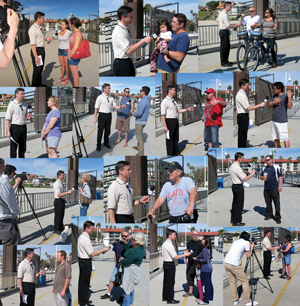 On
a sunny Saturday five Telsius Productions film crew members set up our cameras
at a busy Los Angeles location. We asked dozens of passersby who identified
themselves as frequent restaurant customers their opinions and beliefs and assumptions
about food servers and tipping. Everyone who agreed to be
interviewed was asked the same questions. Their answers were often surprising,
sometimes heartwarming, and occasionally shocking. We learned why some felt
justified leaving no tip for a waiter or waitress. We heard guesses on how much
servers earn as an hourly wage, and whether or not servers pay income tax. And
we listened to their views on server benefits like health insurance and paid sick
days.
On
a sunny Saturday five Telsius Productions film crew members set up our cameras
at a busy Los Angeles location. We asked dozens of passersby who identified
themselves as frequent restaurant customers their opinions and beliefs and assumptions
about food servers and tipping. Everyone who agreed to be
interviewed was asked the same questions. Their answers were often surprising,
sometimes heartwarming, and occasionally shocking. We learned why some felt
justified leaving no tip for a waiter or waitress. We heard guesses on how much
servers earn as an hourly wage, and whether or not servers pay income tax. And
we listened to their views on server benefits like health insurance and paid sick
days.
To all those who agreed to be interviewed (including Adrian, Ali, Eric, Leya, Natalie, Jacob, Robert, Carol, Anna, Steven, Martha, Duncan, Flavio, Howard, Jeri, Michael, Ann, Ted, Gerardo, Rene, Dorothy and Sam): Thank you for your time and your candid answers!
